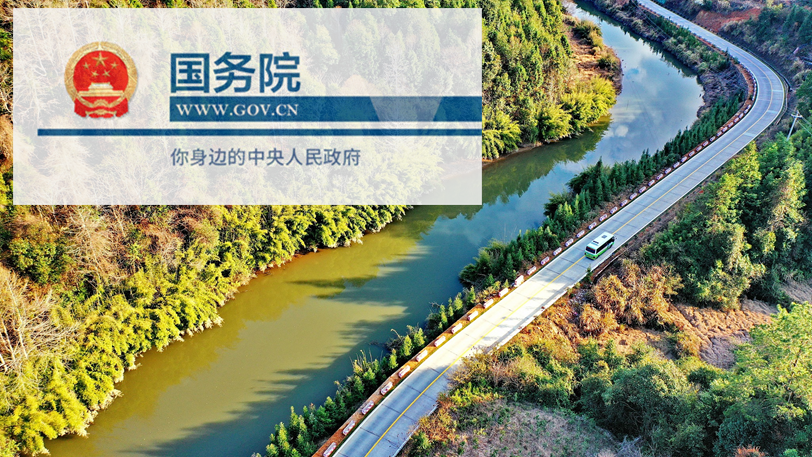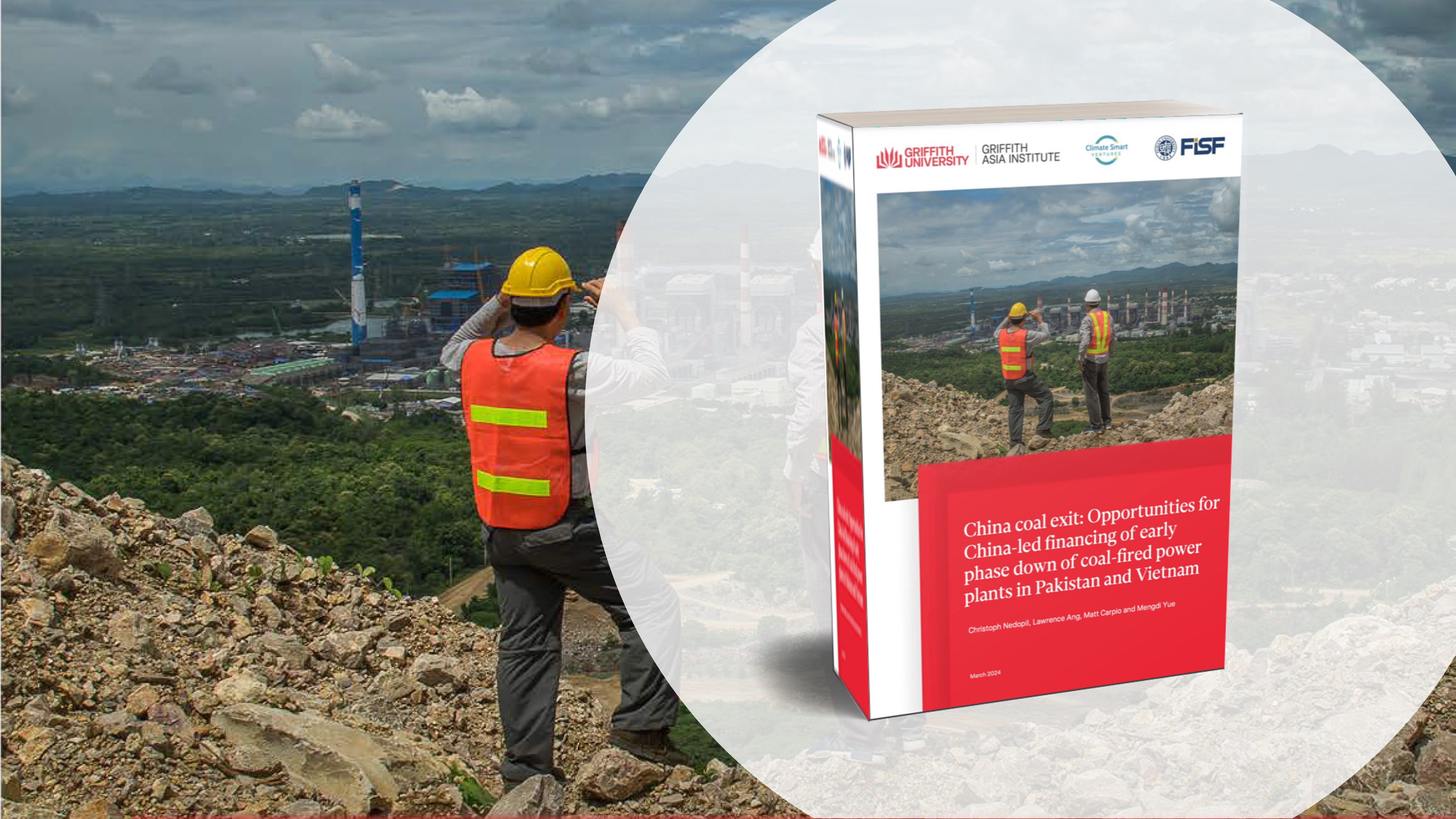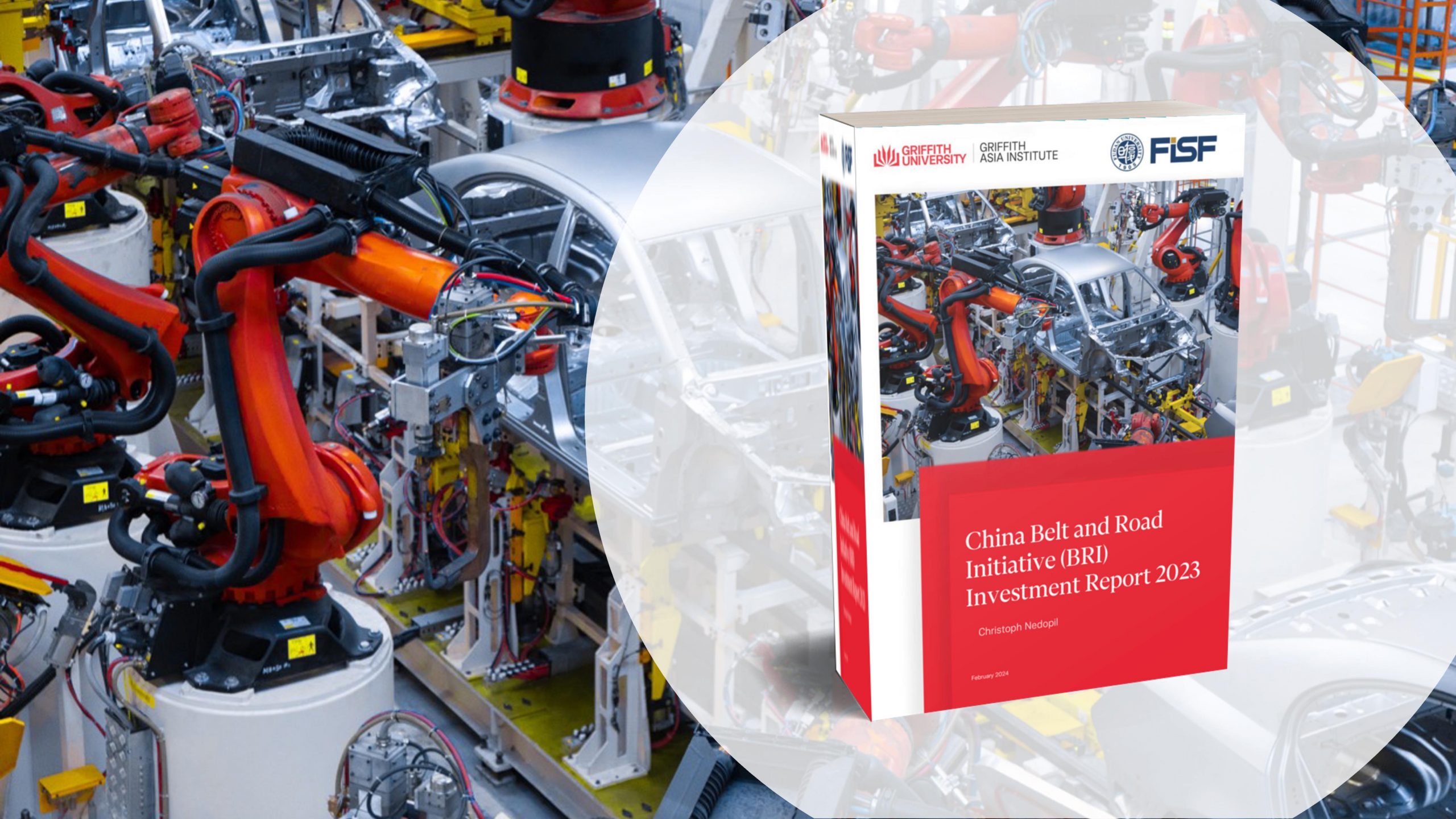On February 22, 2021, China’s State Council issued the “Guiding Opinions on Accelerating the Establishment and Improvement of a Green and Low-Carbon Circular Development Economic System”. Published by the highest Chinese governing body only few weeks before the start of the “Two Sessions”- the annual plenary sessions of the national People’s Congress and the national Chinese People’s Political Consultative Conference, this document must be understood as highly influential. Its relevance is further heightened as it is published weeks before the publication of China’s next 5-year plan 2021-2025, which determines much of China’s strategic development direction.
The Guiding Opinions set an ambitious and comprehensive direction to put China on a greener development path. It covers sectors from energy to manufacturing, from service to agriculture. It covers research and development, policy making and legal enforcement. It covers finance, standards and international cooperation. It calls for “green planning, green design, green investment, green construction, green production, green circulation, green life, and green consumption” with strict ecological protection, effective control of greenhouse gas emissions.
Overview of the Guiding Opinions and the circular
China’s Goals on green development:
1. by 2025
- improve the industrial structure, energy structure and transportation structure;
- increase the proportion of green industries and the level of green infrastructure,
- optimize the green transformation of production and lifestyle results;
- complete the market-oriented green technology innovation system;
- develop the regulation and policy system.
2. by 2035
- significantly enhance green development;
- scale up green industry to a new level;
- widely form the green production and lifestyle system;
- decrease the carbon emissions after peaking;
- fundamentally improve the ecological environment;
- achieve the goal of building a beautiful China.
Overview of the Content of the Guiding Opinions:
1. Guiding ideology of the circular: under the leadership of President Xi Jinping, comprehensively promote the principle of “green planning, green design, green investment, green construction, green production, green circulation, green life and green consumption”; establish a sound economic system featuring green, low-carbon development; aim to realize the goals of carbon peak and carbon neutrality.
2. Improve the system by three aspects
a. green, low-carbon production system
b. green, low-carbon circulation system
c. green, low-carbon consumption system
3. Improve national infrastructure
4. Improve the green technical innovation system
- green, low-carbon technology innovation;
- green technological outputs;
- green technology trade center.
5. Improve the regulatory system —— emphasize the development of green finance
- support financial institutions and related enterprises to develop green financing in the international market;
- promote the convergence of international green finance standards;
- promote the bipolar opening of green finance market;
- develop the climate financing.
6. Supervise the implementation —— emphasize the international cooperation
- policy coordination
- technological cooperation
- international project
- circulation of talents
Interpretation of the Guiding Opinions
Relevance
The Guiding Opinions were released shortly before the “Two Sessions” and shortly before the publication of the national 5-year plan. They set an ambitious direction to put China on a greener development path. Since the Guiding Opinions were issued by the State Council, China’s highest governing body, their impact on China’s green development could be strong.
The Guiding Opinions emphasize previous announcements, guiding opinions, and strategies of building an ecological civilization and adhering to the 2060 carbon neutrality goals. The Guiding Opinions, however, are a much more overarching framework that is both built on and influences the line ministries and regulators, such as the Ministry of Ecology and Environment (MEE), Ministry of Industry and Information Technology (MIIT), People’s Bank of China (PBOC) and many more.

Goals and ambitions
The goals of the Guiding Opinions are ambitious and in line with previous development philosophy of China, such as the 2060 carbon neutrality goal, the goal to build an ecological civilization or the “green is gold” development philosophy.
However, at this stage, the Guiding Opinions are often lacking specific ambitions. The Guiding Opinions, for example, encourage by 2025 to “significantly optimize” energy, industrial and transportation structure, “significantly increase” the share of green industries, or encourage “the rise” of cleaner production. This leaves much room for interpretation when developing specific 5-year plans in the line ministries and relevant authorities.
Sectors
The Guiding Opinions lay out a broad vision for China’s green future that covers multiple sectors, industries and technologies, which are understood as particularly relevant for achieving China’s green ambitions. The sectors covered range from energy to agriculture, from transportation to the service industry, from industrial production to supply chains.
Energy
The Guiding Opinions promote the green and low-carbon transformation of the energy system and prioritize energy conservation. The latter is particularly relevant for two reasons: first, China’s nationally determined contributions (NDCs) for the Paris Agreement are at this time still relative, that is in regard to emission intensity rather than absolute in total emissions. Thus, energy efficiency gains support the achievement of its NDCs. At the same time, China’s energy efficiency is relatively low, compared to many other equally developed countries. One reason is that China’s electricity prices are relatively low. To support this development, the Guiding Opinions emphasize the policy reform of pricing energy to improve energy-saving. To further encourage low-carbon energy development, the Guiding Opinions also emphasize the role of carbon emissions rights trading, which can be understood as the support of the continued development of the emission trading market (ETS) launched in 2021.
The Guiding Opinions also point out specific technologies that are relevant in the energy sector, such as the development and application of hydrogen for energy storage, biomass energy in rural areas, geothermal energy, ocean energy and solar thermal energy.
The Guiding Opinions, however, stress the use of coal and emphasize the “continued increase of the proportion of large-scale, high parameter and low-polluting coal-fired power generating units”. This is, hardly, a green technology by international standards and with many countries, including developing countries (e.g. Pakistan, Vietnam) announcing a phase-out of coal investments, a disappointing inclusion in such an ambitious document.
Transport
The Guiding Opinions stress the relevance to build on “green roads, green railways, green waterways, green ports and green airports”, without going into too many definitions. The Guiding Opinions further emphasize the use of new energy vehicles technologies, such as charging, battery replacement and hydrogen.
The Guiding Opinions also give specifics on the construction of materials to be used in road construction, such as warm-mix asphalt, energy saving lamps and sound barriers.
Finance
The Guiding Opinions stress to “vigorously develop green finance” that includes green credit, green direct financing, green insurance. It emphasizes to provide lower premiums to green projects.
Furthermore, the Guiding Opinions encourage to unify the currently various green bond standards (e.g. green bonds for private companies and SOEs are currently different). This would create a more liquid and transparent market for investors.
The Guiding Opinions also emphasizes the promotion of climate investment and financing, similar to the Climate Finance Guidance published by the Ministry of Ecology and Environment and 4 other ministries in November 2020.
The Guiding Opinions also promote the convergence of international green finance standards and encourage Chinese financial institutions to internationalize its green finance activities, which could accelerate the tripartite co-investment and international fund raising of Chinese financial institutions, for example in the Belt and Road Initiative (BRI).
As an important aspect, the Guiding Opinions also focus on the evaluation and assessment of financial institutions’ green performance, which would further accelerate the role of the banking and insurance regulator CBIRC to provide proper evaluations of the “greenness” of financial institutions.
Others (agriculture, e-commerce)
The Guiding Opinions provide more and less concrete guidance on developing organic agriculture and waste management and recycling. Particularly for the highly developed, yet often wasteful e-commerce sector, the Guiding Opinions highlight the need to “promote the management of excessive packaging”.
Innovation, research and development
The Guiding Opinions empasize research and development to develop green technology innovations and achieve technological and scientific breakthroughs in energy conservation and clean production. In this regard, they call out, again, the role of enterprise innovation and encourage the integration of universities, scientific research institutes, industrial parks to create innovation eco-systems.
Enforcement
The Guiding Opinions emphasize the enforcement of environmental regulation and encourage to “seriously organize and implement” in all regions and all departments is particularly pronounced. With many laws for environmental protection having been in place for years, enforcement is often the missing link between goals and implementation.
The Guiding Opinions emphasize, for example, to implement mandatory clean production audits in highly polluting enterprises and shut down, ban, relocate and upgrade relevant enterprises. Similarly, the Guiding Opinion stresses the improvement of the management systems for prohibiting fishing in relevant waters.
The Guiding Opinions’ focus on enforcement is in line with the establishment of a “Modern Environmental Governance System” in 2020, which already allowed for relevant inspections of the energy regulator and energy sector at the beginning of 2021 with public criticisms of the use of coal energy and lacking environmental impact assessments.
Market versus government
The Guiding Opinions particularly stress market orientation and do not have much focus on the government sector or state-owned enterprises (SOEs). This is somewhat different from previous announcements that focused more on the role of government enterprises.
Public engagement
The Guiding Opinions emphasize the role of the consumer and the civil society. A green and low-carbon lifestyle should be advocated, for example by “resolutely stopping food waste”, as well as through training and public awareness raising.
The Guiding Opinions also encourage “all kinds of news media” to not only promote the positive story of the green and low carbon development, but also to expose ecological damage, environmental pollution, serious waste of resources, violations of regulation, high energy consumptions with “negative examples (…) creating a good atmosphere for the development of the green and low-carbon” environment.
Relevance of the Guiding Opinions for international cooperation and for the Belt and Road Initiative (BRI)
The Guiding Opinions highlight the need for international cooperation on green standards and encourages that China should “actively lead and participate in the formulation of relevant international standards, promote quality assessment cooperation and mutual recognition mechanism” .
The Guiding Opinions in regard to the BRI focus on green trade, where China has increasingly become under scrutiny, e.g. for soft commodity trading for example in timber, and agricultural products trading for example in soy and blue economy issues due to overfishing.
The Guiding Opinions stress the role of international cooperation where it hopes for China to “take the lead in global climate governance”.
Areas for strengthening the Guiding Opinions
While the Guiding Opinions cover a wide range of topics and are ambitious in many of those, some issues can be further specified and increase ambitions when developing sectoral five-year plans in the various ministries and regulators:
- Increase use of specific and ambitious targets, for example for absolute CO2 emission peak or CO2 reduction: the current document only lays out the goal to increase or improve or accelerate green development, without giving specific and thus ambitious targets. Ideally, to increase ambitions of investors and minimize financial risks, a clear target in CO2 emissions and nature-positive ambitions would provide the necessary clarity of the green ambitions.
- Introduce an immediate stop to new coal fired power plants and a phase-out for existing plants within China: the Guiding Opinions promote the clean and efficient development, conversion and utilization of coal and does not mention the phase-out of coal power. Internationally, many emerging countries, such as Pakistan, have announced to phase out new coal investments. However, the Guiding Opinions state to “control the newly added coal power installed capacity” and promote the clean and efficient development, conversion, and utilization of coal. For the protection of the climate, coal-fired power plants should be upgraded and phased-out with an ambitious and realistic time plan while no new coal-fired power plants should be built.
- Strengthen the application of international cooperation in green BRI projects: With China emphasizing its goal to build a green BRI and its goal to lead in green technologies, China should encourage international investors to cooperate with Chinese investors to install green (Chinese) technologies in energy, transport, etc. in BRI countries This would allow China to further scale green technology with ensuing scaling effects on price, benefiting both domestic and international partners.
- Accelerate and specify green supply chain finance and green trade in the BRI and beyond: The Guiding Opinions emphasize the role of green supply chains. This is highly important for BRI countries that export goods ranging from agricultural goods to soft commodities, from fisheries to mining products to China. A clear system for ensuring environmentally sound trade and supply chain is key to ensure both domestic green consumption and protection of the environment in the source countries.





Comments are closed.